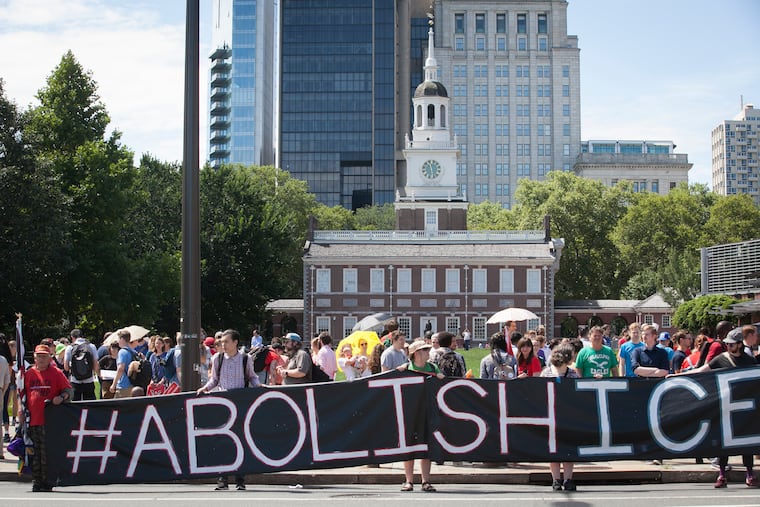Rampant abuse of migrant detainees will stain American history | Opinion
Across the country, migrant detainees are often treated like common criminals and subjected to harsh prison conditions.

The horrific seizures of children at the southern border have stopped, but the conditions faced by the 39,000 migrant detainees, including asylum seekers, held in U.S. detention facilities on any given day are often dire.
Most detainees are held in county jails, federal prisons, and private prisons with Immigration and Customs Enforcement contracts under the same harsh conditions as convicted felons.
Abuse of detainees is so rampant, it seems to border on policy.
One private migrant detention facility in Tacoma, Wash., sits in the middle of a toxic, sludge-filled Superfund site, and has been the subject of a particularly large number of complaints against its staff for physical and sexual assault. At facilities in California, sexual abuse is widespread; in Arizona, the molestation of migrant teens has been reported.
Nationwide, more than half of those who have been accused of sexual abuse, including gang rape, have been ICE employees. LGBTQ detainees are particularly susceptible to abuse, experiencing 97 times more sexual assault than other detainees. One well-documented report speculates that sexual assault and harassment in immigration detention "are not only widespread but systemic, and enabled by an agency [ICE] that regularly fails to hold itself accountable."
Elsewhere, at a Staunton, Va., facility for juveniles, migrant teens were routinely beaten while handcuffed. In Georgia, another form of abuse prevails: The Stewart Detention Center in Lumpkin, a 1,700-bed private prison, forces detainees to cook, clean and perform other tasks for as little as $1 a day (and no more than $4 for a double shift), maximizing profits for the owner.
Conditions for migrant detainees are so bad at the U.S. penitentiary in Victorville, Calif., that the American Civil Liberties Union and two other organizations have filed a lawsuit and called the situation there a "human rights crisis." At other facilities, detainees have been put in solitary confinement for praying. Medical care is often delayed or denied. Some detainees die while in custody.
Adding to this litany of horror stories, the three detention centers in New Jersey are a microcosm of everything that's gone wrong. According to a report by Human Rights First, a nonpartisan, nonprofit group, detainees at the facilities are being given "food with maggots, dirty drinking water…and shoddy medical and mental health care." The report also documented the use of solitary confinement to penalize inmates for, among other things, "filing grievances or requesting medical attention."
Several members of the New Jersey and New York congressional delegations visited the privately operated Elizabeth facility in June to attend a protest and conduct a surprise inspection. When they emerged, some of the lawmakers were visibly shaken, with Rep. Bill Pascrell (D., N.J.) declaring, "What is happening to [the detainees] is despicable. It's a sin."
President Trump has said that migrants are "animals" and has repeatedly cast them as gang members, drug dealers, and rapists who will usher in a tidal wave of crime if allowed into the country.
He's got his facts wrong, and he surely knows it. The libertarian Cato Institute said in June that "the vast majority of research finds that immigrants [in Texas] do not increase local crime rates and are less likely to cause crime and less likely to be incarcerated than their native-born peers." The New York Times, in conjunction with the Marshall Project, a nonprofit news organization, reported that crime "fell more often than it rose" in areas with a heavy influx of immigrants.
Trump has created a climate that has encouraged the mistreatment of migrants for his own political gain, and he's done it, mostly, with impunity. That may be changing as reports of abuse come to light despite the administration's best efforts: It's seeking permission from the National Archives and Records Administration to destroy official records related to its treatment of migrant detainees.
History is filled with stories of tyrants who have debased minorities, often with catastrophic results. We need to set Trump straight and tell him that he's not going to get away with it here. Too many people are watching.
Martin W.G. King is the former senior writer at the National Crime Prevention Council in Washington.